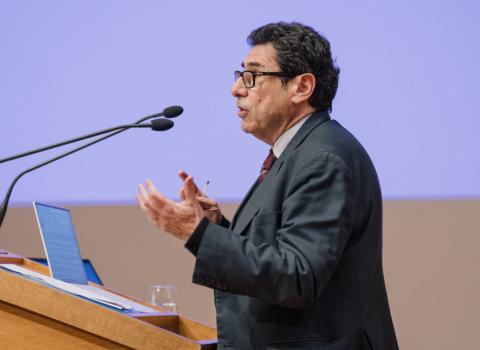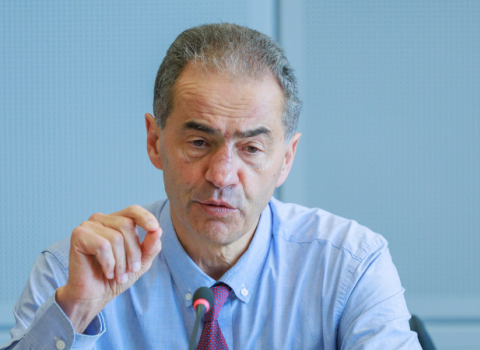The grant amounts to a total of 2 million euros for each project and will allow the researchers to position themselves as independent research leaders. The Consolidator Grant is meant for young researchers who obtained their PhDs between 7 and 12 years ago.
The recipients
- Dr Ben Freivogel (Institute of Pysics, Faculty of Science) - Quantifying Quantum Gravity Violations of Causality and the Equivalence Principle
Freivogel's ERC project intends to accurately identify the circumstances and scales where quantum-mechanical effects of gravity become relevant. Although these quantum effects are typically believed to be extremely tiny on scales that can be probed experimentally, recent results of Freivogel and others suggest that under certain circumstances quantum gravity effects can become large and perhaps even observable on much larger, macroscopic, length scales. This could in particular have major consequences for the possibility to probe quantum gravity through cosmology.
- Prof. Guy Geltner (Amsterdam School of History, Faculty of Humanities) - Healthscaping Urban Europe: Bio-Power, Space and Society, 1200-1500
Medieval public health is mired in modern myth: without centralised governments, democratic values and advanced medicine, promoting health at the population level was purportedly either unthinkable or simply impractical. Offering a radically different view, Geltner will document, analyse and disseminate knowledge about preventative public healthcare between 1200-1500, an era of accelerated urbanisation followed by massive demographic decline, with the onset of Black Death (1347-51). This long-term and comparative perspective will fundamentally revise the narrative of European public health by tracing the development and impact of pertinent government policies, medical discourses and social and religious action in the continent’s two most urbanized and richly documented regions, Italy and the Low Countries.
- Prof. Christa Testerink (Swammerdam Institute of Life sciences, Faculty of Science) - Surviving Salinity: How do Plants Sense Na+?
A major gap in our knowledge of how plants respond to soil salinity is their initial perception of sodium (Na+) ions. Salt is detrimental to plants and soil salinisation is an increasing threat to global food security; 6% of the world’s total land area and 20% of irrigated land are affected by salinity. Testerink recently discovered a Na+-specific growth response of plants, which she will now exploit to identify the elusive sodium sensing mechanism. Her research will reveal how plant responses to salinity stress are driven, and ultimately what is required to cope with salinity. In addition, it will open up new applied directions for agriculture, where improved sodium sensing modules will be used to allow crop growth on marginal, saline soils.





 A unique international forum for public research organisations and companies to connect their external engagement with strategic interests around their R&D system.
A unique international forum for public research organisations and companies to connect their external engagement with strategic interests around their R&D system.